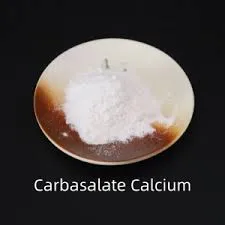- Afrikaans
- Albanian
- Amharic
- Arabic
- Armenian
- Azerbaijani
- Basque
- Belarusian
- Bengali
- Bosnian
- Bulgarian
- Catalan
- Cebuano
- Corsican
- Croatian
- Czech
- Danish
- Dutch
- English
- Esperanto
- Estonian
- Finnish
- French
- Frisian
- Galician
- Georgian
- German
- Greek
- Gujarati
- Haitian Creole
- hausa
- hawaiian
- Hebrew
- Hindi
- Miao
- Hungarian
- Icelandic
- igbo
- Indonesian
- irish
- Italian
- Japanese
- Javanese
- Kannada
- kazakh
- Khmer
- Rwandese
- Korean
- Kurdish
- Kyrgyz
- Lao
- Latin
- Latvian
- Lithuanian
- Luxembourgish
- Macedonian
- Malgashi
- Malay
- Malayalam
- Maltese
- Maori
- Marathi
- Mongolian
- Myanmar
- Nepali
- Norwegian
- Norwegian
- Occitan
- Pashto
- Persian
- Polish
- Portuguese
- Punjabi
- Romanian
- Russian
- Samoan
- Scottish Gaelic
- Serbian
- Sesotho
- Shona
- Sindhi
- Sinhala
- Slovak
- Slovenian
- Somali
- Spanish
- Sundanese
- Swahili
- Swedish
- Tagalog
- Tajik
- Tamil
- Tatar
- Telugu
- Thai
- Turkish
- Turkmen
- Ukrainian
- Urdu
- Uighur
- Uzbek
- Vietnamese
- Welsh
- Bantu
- Yiddish
- Yoruba
- Zulu
Dec . 06, 2024 06:03 Back to list
inj tylosin
Understanding Inj Tylosin Implications and Applications in Veterinary Medicine
Tylosin is a macrolide antibiotic commonly used in veterinary medicine, particularly for the treatment of various animal infections. While it is primarily known for its efficacy against Gram-positive bacteria, it also has activity against some Mycoplasma species, making it a versatile choice for treating respiratory diseases in livestock and poultry. The term Inj Tylosin typically refers to injectable formulations of tylosin, which provide faster systemic absorption compared to oral forms. This article aims to explore the significance of Inj Tylosin in veterinary practices, its applications, potential alternatives, and the implications of its use in animal husbandry.
Role in Veterinary Medicine
Inj Tylosin is predominantly used in the treatment of respiratory and intestinal infections in livestock, particularly in pigs and cattle. It has been found effective against bacterial pneumonia and enteritis, conditions that can lead to significant economic losses in the livestock industry. The injectable form allows for quick and effective administration, ensuring that the antibiotic reaches therapeutic levels in the bloodstream swiftly, which is critical in acute cases.
Moreover, tylosin has gained popularity in treating Mycoplasma infections, which are challenging to manage due to their unique pathogens. The injectable formulation allows practitioners to deliver a potent dose directly into the animal, ensuring better outcomes in severe cases where oral administration might be less effective.
Administration and Dosage
The administration of Inj Tylosin can vary based on the type of animal and the condition being treated. Dosage is generally determined by the animal's weight and the severity of the infection. Veterinarians often prefer this formulation for conditions requiring rapid intervention. However, it's essential to adhere strictly to veterinary guidelines to avoid potential overdosing, which can lead to adverse effects.
Impact on Animal Health and Production
inj tylosin

The timely administration of Inj Tylosin can significantly enhance animal health and productivity. By effectively controlling bacterial infections, farmers can minimize the incidence of disease outbreaks, thereby maintaining herd health. Healthy animals tend to have better feed conversion rates, which can lead to increased meat or milk production, benefiting farmers economically.
In addition, prevention of disease through the use of injectable antibiotics like tylosin reduces the need for further veterinary interventions, which can save costs in the long run. Healthy livestock also means fewer welfare concerns, leading to improved conditions both for the animals and the producers.
Considerations and Alternatives
Despite its effectiveness, there are growing concerns surrounding the use of antibiotics in agriculture, particularly in relation to antibiotic resistance. The use of Inj Tylosin, like other antibiotics, can contribute to the development of resistant bacterial strains. As such, veterinarians and farmers are encouraged to use injectable antibiotics judiciously, considering alternative treatments and management practices that can reduce reliance on antibiotics.
Vaccination, improved biosecurity measures, and better husbandry practices are among the alternatives that can help manage infections without solely depending on antibiotic use. Research into probiotics and other natural treatments is also underway, providing potential avenues for disease management that do not contribute to antibiotic resistance.
Conclusion
Inj Tylosin plays a crucial role in veterinary medicine, particularly in treating bacterial infections in livestock. Its injectable formulation allows for rapid and effective treatment, significantly impacting animal health and productivity. However, as the industry moves toward more sustainable practices, it is essential for veterinarians and farmers to consider the implications of antibiotic use and explore alternative methods to maintain animal health. Through a balanced approach, veterinary professionals can help ensure that the benefits of Inj Tylosin are harnessed while minimizing the risk of antibiotic resistance in both animals and the broader community.
-
Guide to Oxytetracycline Injection
NewsMar.27,2025
-
Guide to Colistin Sulphate
NewsMar.27,2025
-
Gentamicin Sulfate: Uses, Price, And Key Information
NewsMar.27,2025
-
Enrofloxacin Injection: Uses, Price, And Supplier Information
NewsMar.27,2025
-
Dexamethasone Sodium Phosphate Injection: Uses, Price, And Key Information
NewsMar.27,2025
-
Albendazole Tablet: Uses, Dosage, Cost, And Key Information
NewsMar.27,2025













